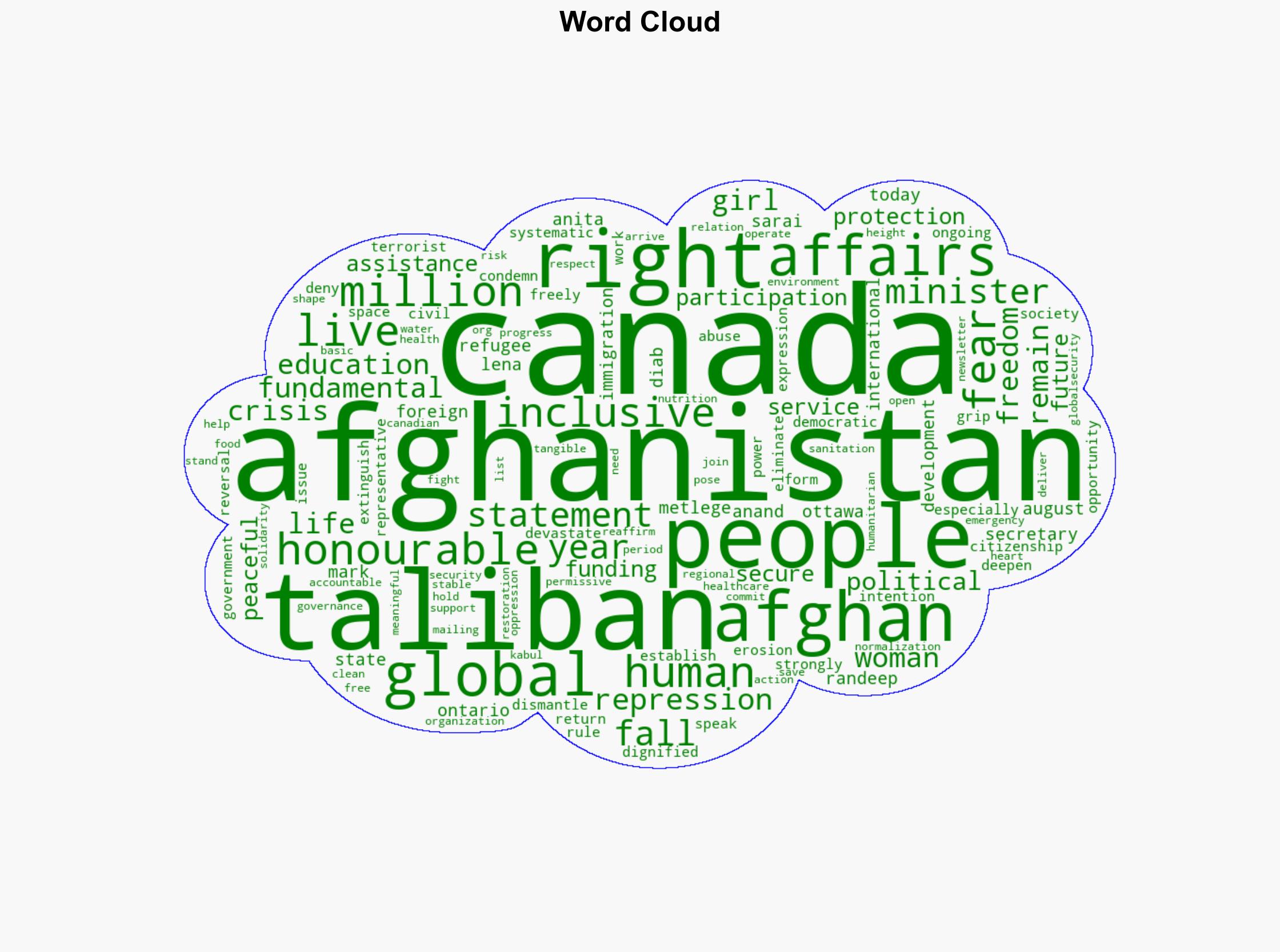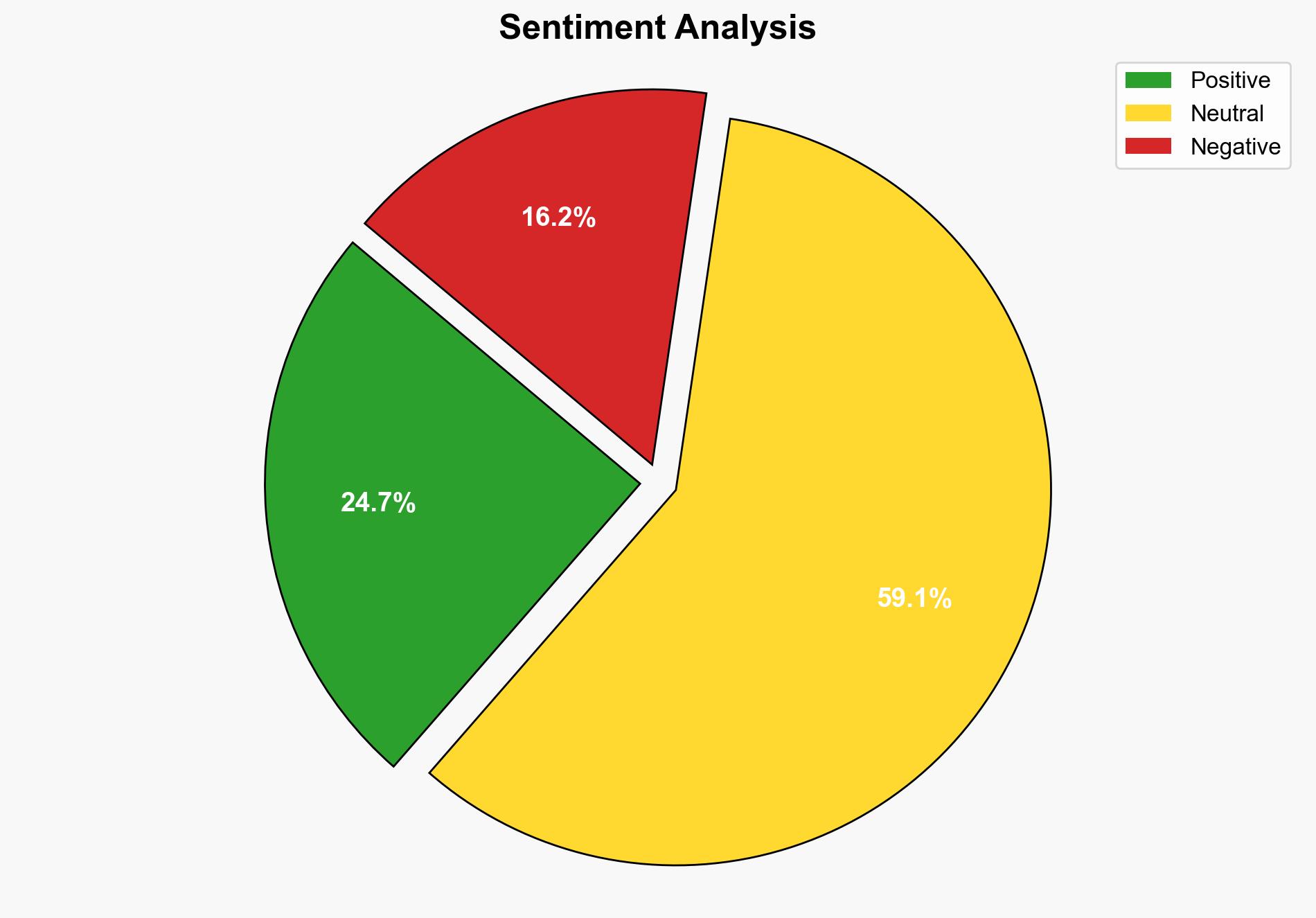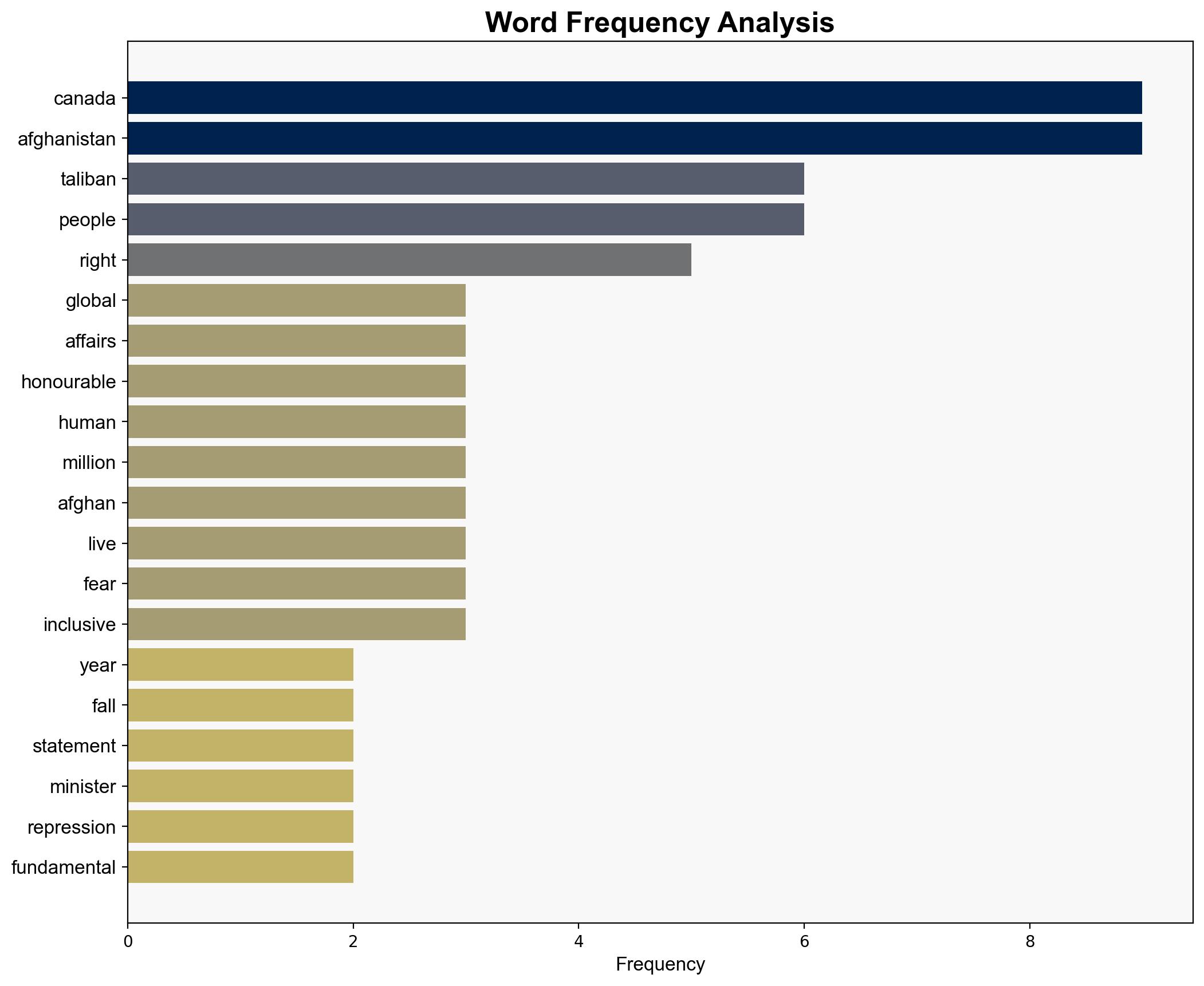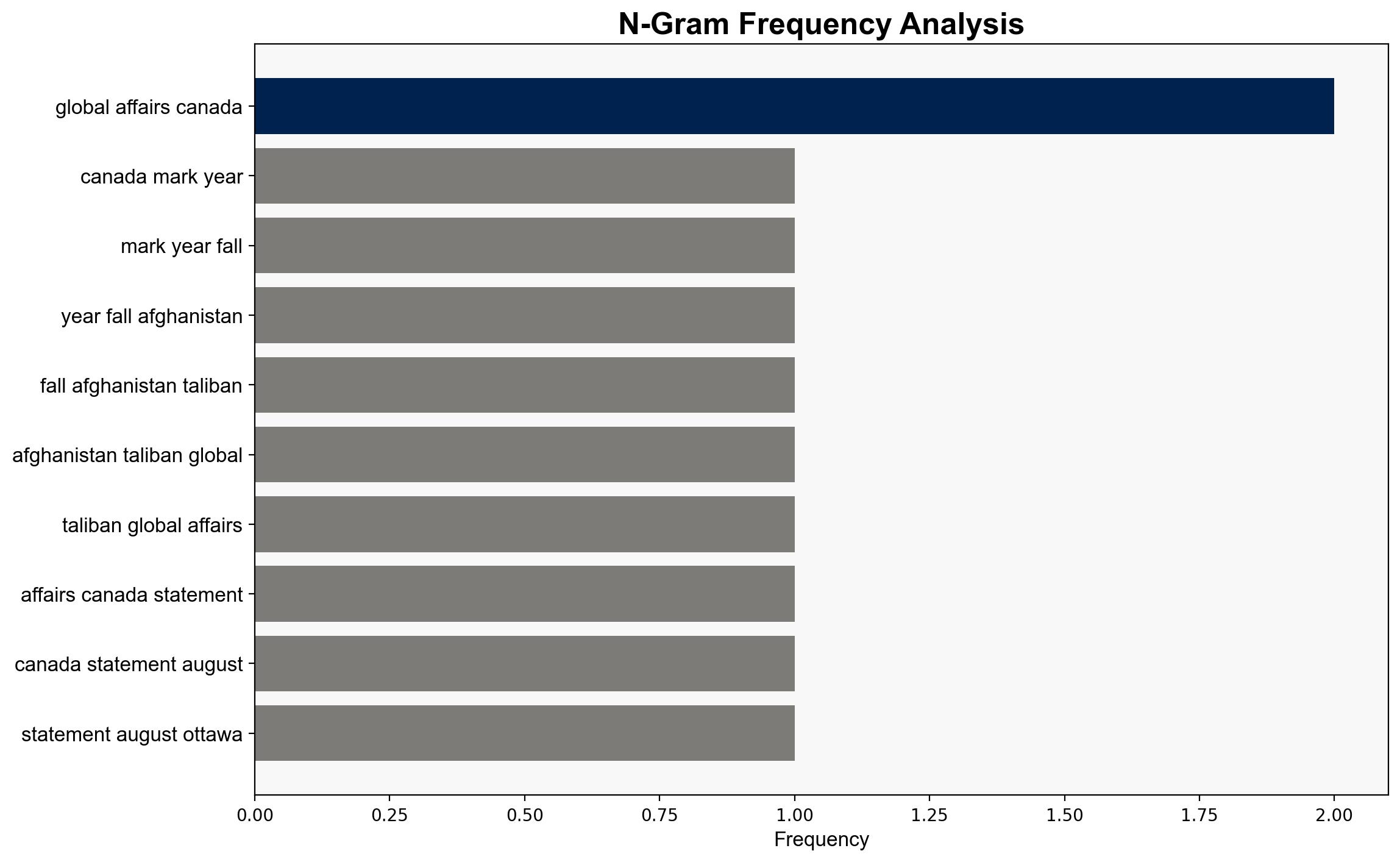Canada marks four years since the fall of Afghanistan to the Taliban – Globalsecurity.org
Published on: 2025-08-16
Intelligence Report: Canada marks four years since the fall of Afghanistan to the Taliban – Globalsecurity.org
1. BLUF (Bottom Line Up Front)
The most supported hypothesis is that Canada’s continued condemnation of the Taliban’s human rights abuses and lack of inclusive governance is part of a broader strategy to maintain international pressure on the Taliban regime. Confidence level: Moderate. Recommended action: Canada should enhance diplomatic efforts with allies to coordinate a unified international response, including potential sanctions and support for Afghan civil society.
2. Competing Hypotheses
1. **Hypothesis A**: Canada’s statement is primarily symbolic, aimed at reinforcing its international image as a defender of human rights without expecting significant change in Afghanistan.
2. **Hypothesis B**: Canada’s statement is part of a strategic effort to galvanize international action against the Taliban, aiming for tangible changes in governance and human rights in Afghanistan.
Using ACH 2.0, Hypothesis B is better supported due to Canada’s historical commitment to international coalitions and its significant humanitarian aid contributions, indicating a desire for impactful change rather than mere symbolism.
3. Key Assumptions and Red Flags
– **Assumptions**: Both hypotheses assume Canada has the capacity to influence international policy effectively. Hypothesis B assumes international partners are receptive to coordinated action.
– **Red Flags**: Lack of specific measures or timelines in the statement could indicate a gap between rhetoric and action. The absence of direct engagement with Taliban representatives might limit diplomatic options.
4. Implications and Strategic Risks
– **Geopolitical**: Continued instability in Afghanistan could exacerbate regional tensions, potentially affecting neighboring countries and international security.
– **Economic**: Prolonged humanitarian crises may necessitate increased international aid, straining donor countries’ resources.
– **Psychological**: Persistent repression could lead to increased radicalization and recruitment by extremist groups.
5. Recommendations and Outlook
- Coordinate with international allies to impose targeted sanctions on Taliban leaders while ensuring humanitarian aid reaches civilians.
- Engage with regional powers to stabilize Afghanistan and prevent spillover effects.
- Best Case: International pressure leads to improved human rights and governance in Afghanistan.
- Worst Case: Taliban consolidates power, worsening regional instability.
- Most Likely: Continued stalemate with incremental humanitarian improvements.
6. Key Individuals and Entities
– Anita Anand
– Randeep Sarai
– Lena Metlege Diab
– Taliban leadership
7. Thematic Tags
national security threats, human rights, international diplomacy, regional stability




